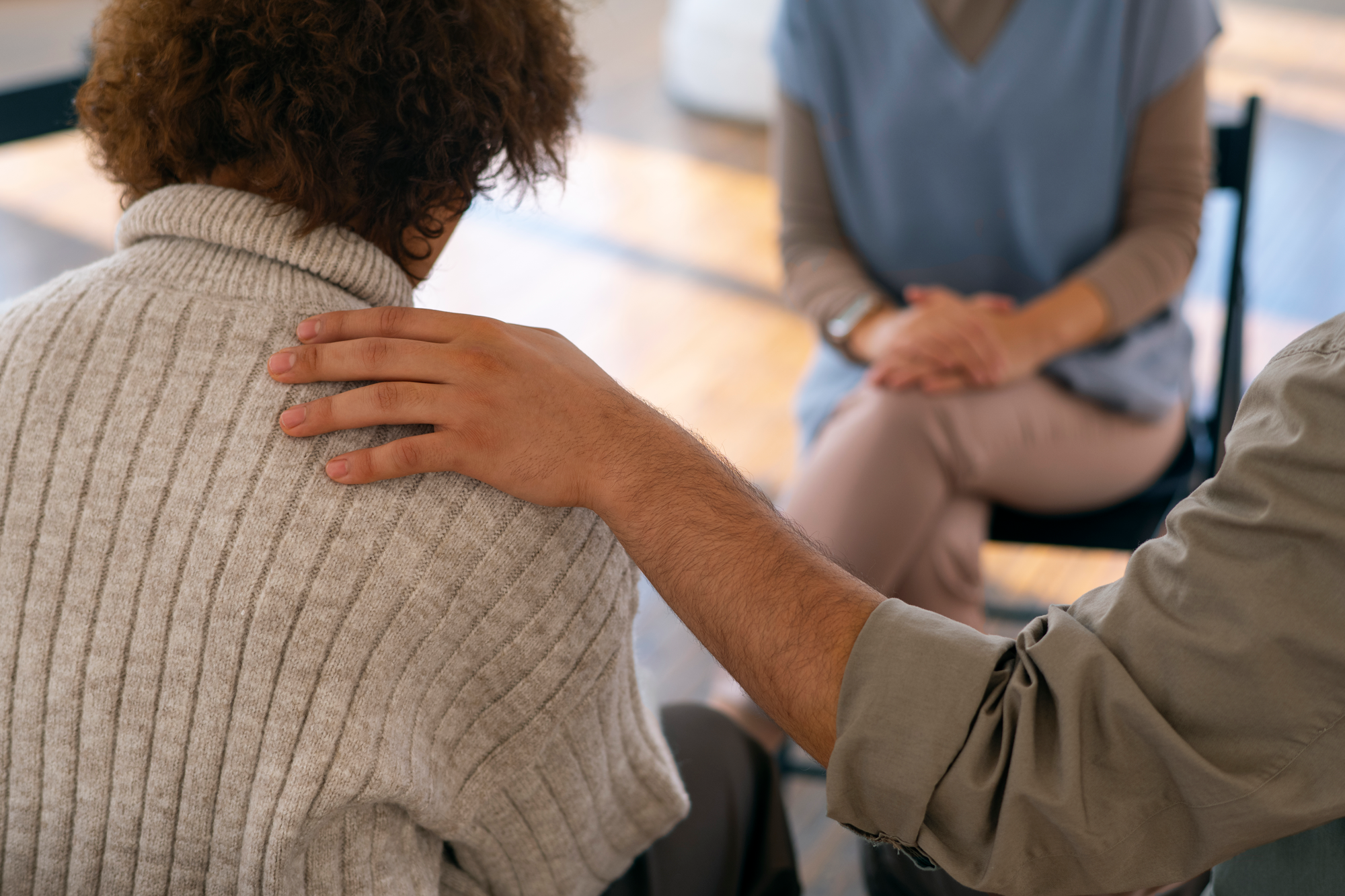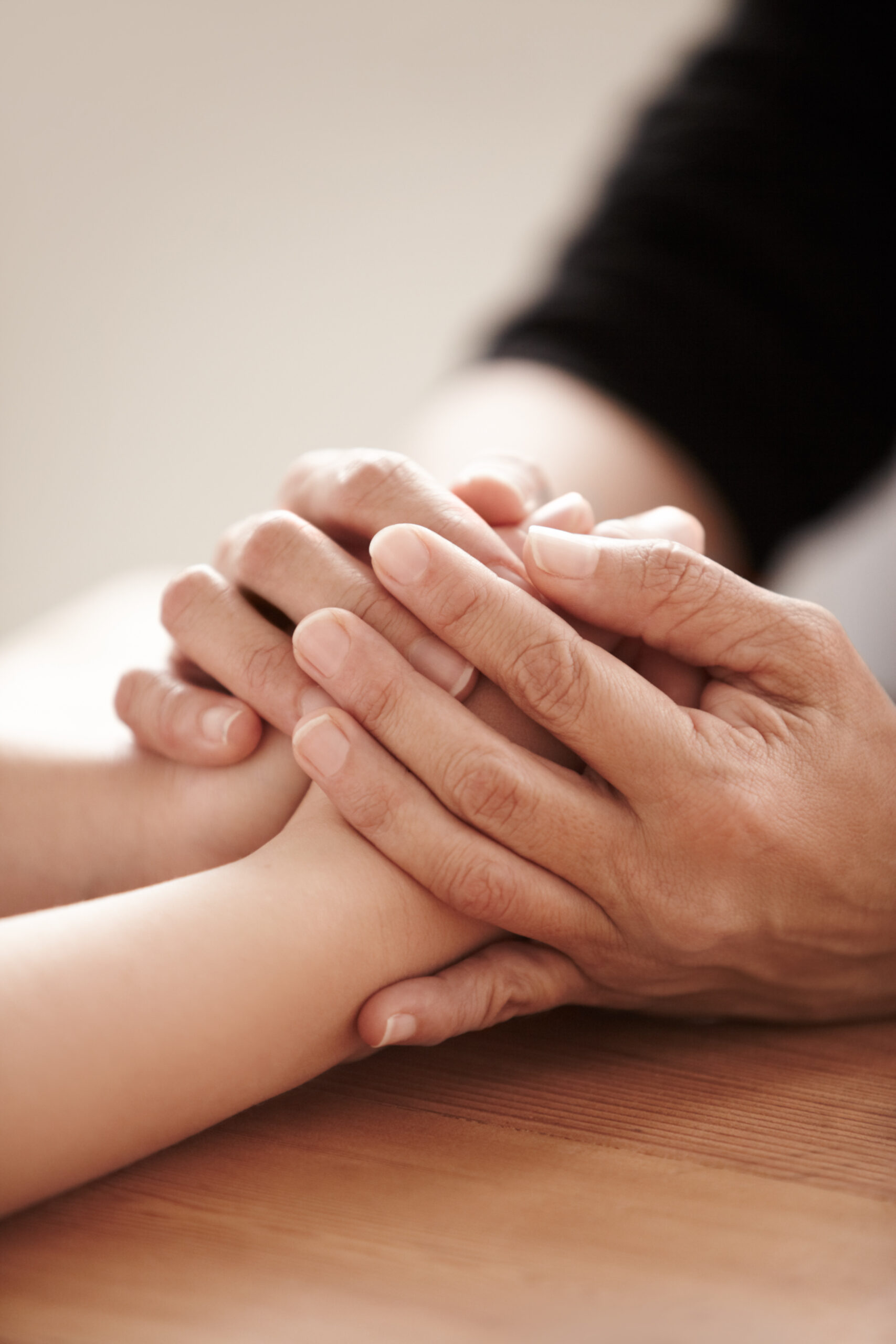Caring for a sepsis survivor
This page provides information to support you in the early stages of your loved ones recovery after sepsis.
Everyday tasks, such as getting dressed or climbing the stairs, may now present significant challenges for your loved one. On top of this, they may also be grappling with the psychological impact of sepsis.
As their temporary carer, you’ll likely face many unforeseen situations, often with limited professional advice available. Many survivors and their families receive little information about the after-effects of sepsis or what to expect in the months following discharge from hospital. Even GPs are sometimes unaware of what lies ahead, leaving survivors and their relatives feeling isolated and apprehensive.
Your loved one’s sepsis experience may continue to impact them both physically and emotionally even after they return home. Recovery from such a serious illness can take time, regardless of their age, prior health, or activity level. It’s essential to be patient and supportive as they heal.
It’s natural to be shocked and concerned about what they’ve endured. While you may feel relief and joy at having them back home, understanding the full extent of their experience and the ongoing challenges they face can be difficult.
Remember, even if they seem to be doing well on the outside, they may still be struggling internally. Offering them understanding and support, and encouraging open communication about their feelings, will help them navigate their recovery more effectively.

We’re here for you
Call our Nurse-led helpline: 0808 800 0029
Usual working hours 9am – 4pm Monday to Friday (excluding Bank Holidays)
Or click here to schedule a callback
Request email support by completing this form.
We aim to reply within 48 hours
We have dedicated Facebook groups moderated by our Support Nurses. Click here to join our recovery group.
SEPSIS RECOVERY
Sepsis Survivors can face a range of new physical, cognitive, and/or psychological challenges when they return home. Our Survivors page and information booklets provide a comprehensive list of some of the common problems, and some information on Post Sepsis Syndrome.
These new challenges can make daily life difficult for both you and your loved one. Fatigue is particularly common during early recovery, along with feeling very emotional and vulnerable. As their closest support, you’ll be the person they turn to, and it can be hard to see someone we love struggling.
Sometimes, survivors may feel overwhelmed by the care they receive, perceiving it as excessive fussing. A gentle reminder that they’ve been through a severe illness and that you’re only trying to help them recover can be reassuring. Many survivors don’t fully remember their acute illness and may feel frustrated when they can’t return to normal activities as quickly as they’d like. Understanding their perspective, and the guilt they may feel for the additional burden they’re placing on others, is crucial.
The fear of sepsis returning can also cause significant anxiety for both the survivor and their close relatives. Even a common cold can trigger stress and worry. This is entirely understandable. Knowing the signs and symptoms of sepsis and understanding what to do and where to seek help can alleviate some of this anxiety. Over time, as your loved one experiences minor infections and recovers from them, this fear should begin to lessen. While some survivors may need to be readmitted to hospital for a milder infection, they generally recover well within a few days. If anxiety becomes overwhelming, do not hesitate to seek help from your GP or a registered counsellor.

FAQs
What can I expect when my loved one returns home?
It’s challenging to predict how each individual will fare after sepsis. Their recovery will depend on factors such as their pre-illness fitness, any existing chronic conditions (like diabetes), the severity of their sepsis, and the length of their hospital stay.
Your loved one may develop a condition called Post Sepsis Syndrome (PSS), and it could take up to two years for them to feel anything like their old self again. Rest assured, they will improve slowly over time, and many initial difficulties should ease without professional intervention.
However, some survivors may never fully return to the person they were before sepsis. In cases of severe physical, psychological, or emotional impact, they may become a different person altogether. Time will reveal how much of their former self returns. Some relatives describe this as a kind of bereavement, as they mourn the person they knew and adjust to the ‘new normal’ of life after sepsis. While it’s a difficult journey, most survivors and their families do find ways to cope and move forward.
How will this affect me as their loved one?
As the spouse, partner, or parent of a sepsis survivor, you too may have changed because of this experience. You’ve witnessed your loved one become critically ill, often without warning, and have watched in fear as they fought for their life. Fortunately, you saw them slowly recover enough to come home. You likely expected life to return to normal within a few weeks or months.
However, once back home, everything may feel different. Your loved one may have changed, and it may be difficult to ‘fit together’ as the family you once were. Even the simplest daily activities, like having a bath, might now require significant assistance. Going out might become a major event, needing careful planning, and your loved one may tire quickly. Nearly every aspect of your family life may have changed, and you may be unsure if it will ever return to normal.
Less close family members may not realise the extent of these changes and may offer well-meaning but unhelpful comments. Despite increased awareness of sepsis, many people are still unfamiliar with its long-term effects. If your loved one looks physically similar to how they did before their illness, others may assume that everything is back to normal, when in fact, the reality could be far from that.
How can I help my loved one?
Every survivor’s journey is different, and so is every relative’s experience. Staying positive is key. It’s essential to look after your own health as well as your loved one’s, as becoming overtired or ill yourself can make an already difficult situation much harder.
Try to carve out regular time for yourself, whether it’s meeting a friend for coffee or engaging in activities that you enjoy. A nourishing diet, regular exercise, and accepting help from friends or family can make a significant difference. Allow your loved one to do as much as they can manage independently – this not only boosts their confidence but also signals their progress.
Ensure you get enough sleep. It may feel unusual, but consider whether it’s necessary for your loved one to sleep downstairs or in another bedroom temporarily. Constantly checking on them during the night can heighten their anxiety. An intercom could be a helpful solution, allowing everyone to get more rest.

Financial concerns
Your family’s finances may be stretched following your loved one’s extended hospital stay, even if they weren’t the primary breadwinner. If they’re not ready to return to work for some time, which is often the case, financial worries can become a significant concern. You may be eligible for government support through the Personal Independence Payment (PIP), though this can only be claimed after three months from the start of the illness. Visit Citizens Advice for more information on claiming benefits.
Legal advice
If your loved one became critically ill very quickly, you may feel as though you haven’t received enough information. It’s common to feel confused about what has happened and why. If this resonates with you, click here to explore your options and learn more.
